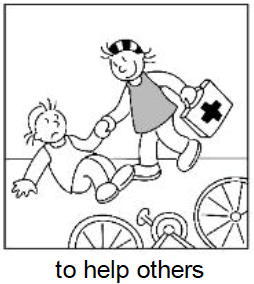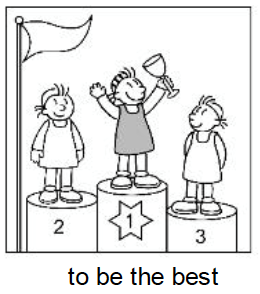VALISE: A Research Project on Value Development Among Primary School Children in Switzerland and the United Kingdom

What are values?
Values are a central concept in the social sciences. For both sociologists Émile Durkheim (1897-1964) and Max Weber (1905-1958) values were crucial in explaining social and personal organisation and change. Values play an important role not only in sociology, but also in disciplines like psychology, anthropology, or education. They are used to characterise cultural groups, societies, and individuals, to track changes over time, and to explain the motivational bases of attitudes and behaviour. Furthermore, they express broad goals (e.g., kindness, curiosity) that are important to a person in life (Bardi & Schwartz, 2003; Maio, 2010).
Today, values are defined as one of the key constructs in the European educational landscape, and accordingly promoting children’s understanding of human values has become an important objective of education. Values-oriented content is prominently mentioned in a wide range of curricula and international framework papers (cf. OECD, Council of Europe) and thus the school context plays a very important role in the process of value transmission.
What is being investigated in the VALISE study?
The research project “The Formation of Children’s Values in School (VALISE)”, which is funded by the Swiss National Science Foundation (SNSF) focusses on the development of values of primary school children in Switzerland and the UK. The longitudinal research project has started in September 2020 and runs until August 2024. The collaborative project is led Prof. Dr. Elena Makarova (Institute for Educational Sciences, University of Basel), PD Dr. Anna K. Döring (University of Westminster, UK) and Prof. Dr. Anat Bardi (Royal Holloway University of London). Further research collaborators of the project are Prof. Dr. Julie Lee (The University of Western Australia, AUS) and Prof. Dr. Maya Benish-Weisman (The Hebrew University of Jerusalem, Israel).
This research project will illuminate how primary schools shape children’s personal value development by employing a longitudinal design in Switzerland along with a comparative cross-sectional study in the UK. It is the first project of its kind to investigate the development of values in primary school children at different ecosystem levels of the school environment (macrolevel - curriculum, mesolevel – school climate and microlevel – proximate teaching processes).
How can values be examined in children and their teachers?
Due to the very heterogenous development stage of children at this young age (e.g., language and writing skills, cognitive skills, learning and performance-related differences) the question arises how children’s values can be measured? In this study the Picture Based Value Survey (PBVS-C, Döring et al., 2010) is used, where values are presented in pictorial items, which the child ranks according to how important these values are in her or his life. Studies based on data from several thousand children from various countries (Döring et al., 2010; Döring et al., 2015, Makarova et al., 2018) show that primary school aged children’s value structures are as differentiated as adolescents’ or adults’ and closely follow the model of value structures as proposed by the model of basic human values (Schwartz, 1992, 1994).
Examples of the Picture-Based Value Survey for Children:

“To help others” represents the value benevolence.

“To be the best” represents the value achievement.
Next to the children’s questionnaire, their class teachers will fill out an online questionnaire, which includes well-established scales to measure their value-oriented educational goals, the children’s value-oriented behaviour, the school climate, or the value-oriented teaching activities of the teachers. Additionally, self-developed instrument will assess teachers’ perceptions of the value-oriented curricular content. These findings will set the foundations for theory building on future formation of values in the school context. This knowledge is essential for providing evidence-based guidance for values education in schools.
What is the current status of the project?
The total sample in Switzerland comprises more than 1’400 children and their teachers in seven German-speaking cantons in Switzerland. The aim is to also recruit around 500 primary school children in the UK to analyse the data cross-culturally. Despite the difficult pandemic conditions, the first data collection (T1) with 1’137 children and 97 teachers (spring 2021) and the second data collection (T2) with 1’184 children and 94 teachers (in autumn 2021) were successfully conducted. We are currently in the third data collection (T3), which will be completed in March 2022. In the UK, the first survey will take place in spring 2022.
What are the first results of the study?
Initial results from the surveys conducted at T1 and T2 provide information on the value priorities and show which values are important to the children and their teachers and which are not. Statistical analysis, which was used for both, the children as a whole and broken down into girls and boys, shows that benevolence is the most important value. The basic value of benevolence also ranks first among teachers' value-based educational goals. This means that the teachers would like to convey this value to their pupils in the first place.
At the bottom of the value hierarchy for the children is the value of power. Social status, prestige and authority thus seem to be the least important for the children (girls and boys). In the value-related educational goals of teachers, power also represents a basic value that teachers would like to convey to their children in last place. In addition to this, the results revealed the greatest discrepancy between the children and their teachers in the value type security. The children prioritised this value in second place, while the teachers only prioritised it in sixth place. Whether this is due to the pandemic situation is the subject of further analysis. Likewise, further analyses on the development of values such as the connection between the value-oriented teaching and educational goals of the teachers and the value-oriented behaviour of the children or the influence of the school environment on the values of the children will be conducted.
First results of our study have already been presented at international conferences (ECER 2021, Geneva). More appearances are planned for 2022. On our project homepage current results and upcoming conferences will be posted: https://bildungswissenschaften.unibas.ch/en/research/value-formation-in-school/
The findings of the study will allow teachers to receive further training in the field of value formation of primary school children and to show them ways of promoting the value-related competences of children in the school context.


